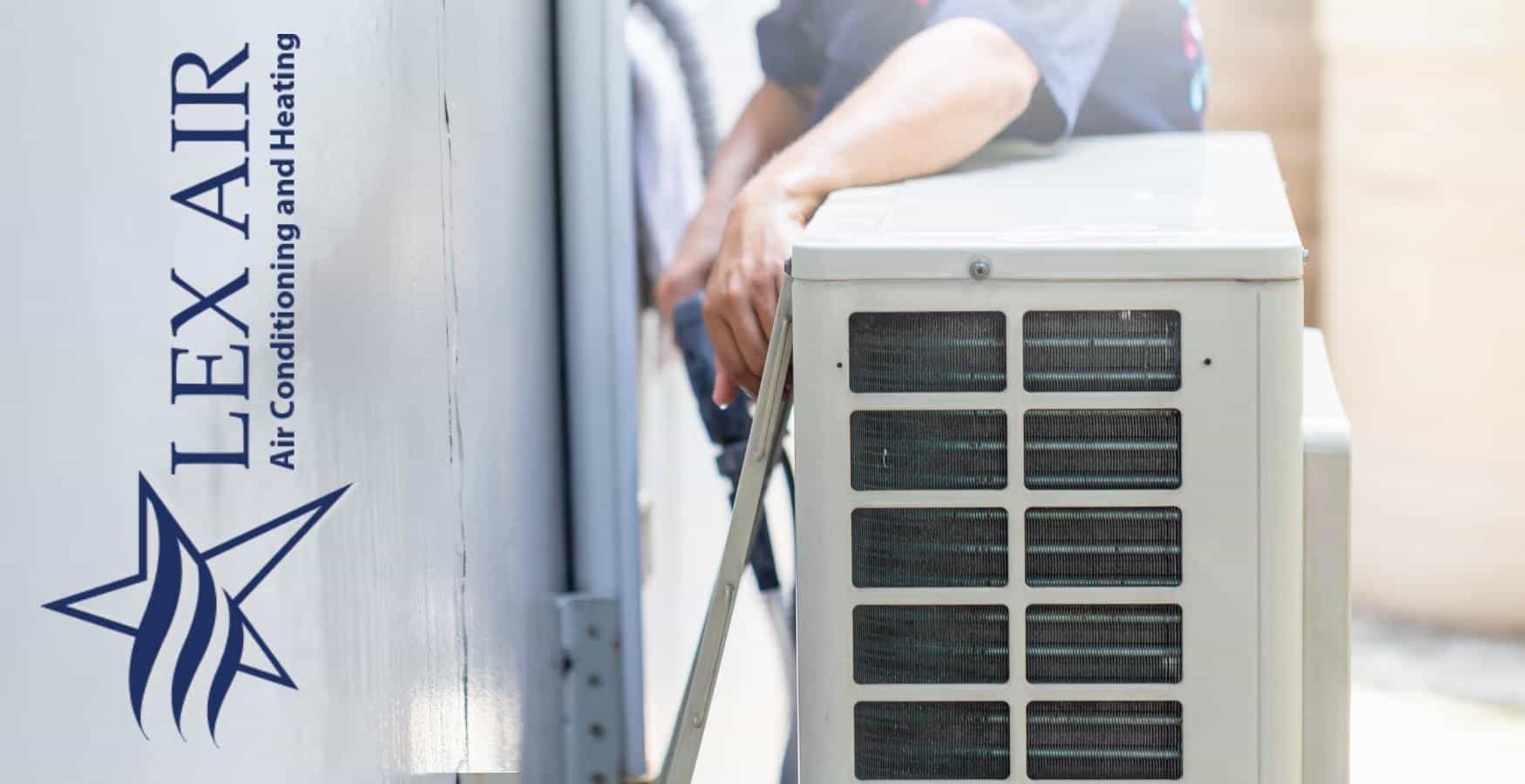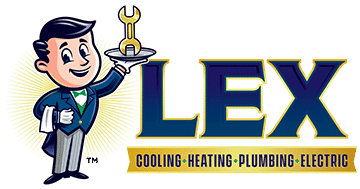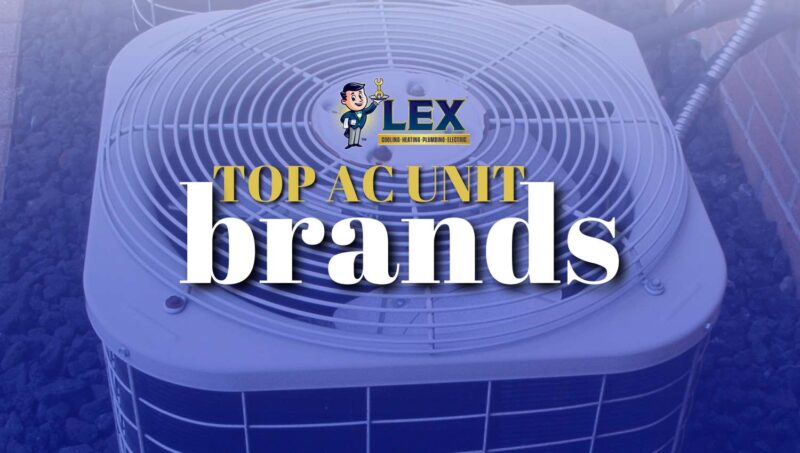Buying a new home is an exciting time for your family, but the last thing you want to deal with is issues with your new home’s AC unit. Unfortunately, that is often something that must be addressed right off the bat, or else your new home may not be nearly as cozy and comfortable as you’d like.
You might need some minor repairs, a whole new HVAC system, or you might just want some peace of mind by receiving a simple inspection and AC tune-up. Whatever the case, when you move into a new home in Texas and have questions about your air conditioning unit, call the Arlington HVAC professionals at Lex Air Conditioning and Heating. We can set you up with an inspection, annual tune-ups, replacements, and new installs whenever you need us.
Now, let’s talk about some things you need to know regarding your air conditioner as a new homeowner.
Tip #1 – Choose an AC Unit that Fits You and Your Family’s Needs
Not every HVAC system is created equal. When choosing an HVAC unit for your new home, you need to choose one that fits your needs. There are several different types of air conditioning systems, but the two main types of central air conditioners are:
Split-System
A split-system air conditioner is exactly what it sounds like: an air conditioner in two parts. In a split system, you’ll have an outdoor unit contained in a metal cabinet usually located right next to your house. This cabinet will contain your condenser and compressor. You will also have an indoor cabinet that contains your evaporator.
In most split-system units, this outdoor cabinet will also contain your furnace or air handler. Your air conditioner’s evaporator coil will actually be installed inside this furnace or air handler. If you already have a furnace but no air conditioner, a split system is probably right for you.
Ductless Mini-Split AC
Many systems use ducts to move air in and out of your heating and cooling system. However, ducts need regular maintenance and cleaning to prevent air leaks, and will eventually need to be replaced.
If you don’t have ducts in your new home, or if you’re looking to do away with your ducts altogether, a ductless mini-split HVAC might work for you. A ductless system includes an inside and outside unit connected by a small hole in your wall. One outside unit can connect to multiple indoor units in your home. These systems also reduce energy use.
A ductless HVAC system can be used in addition to a central air conditioner to really get your home down to the desired temperature–or it can be used in place of a more traditional HVAC system.
Packaged System
A packaged air conditioner is also exactly what it sounds like: your entire cooling unit together in one. The compressor, condenser, and evaporator are all placed in one outdoor unit, usually on the roof or on a concrete slab next to your house. Your air supply and return ducts will connect to your new unit through the exterior wall of your home.
These packaged air conditioning units usually include electric heat coils or a natural gas furnace. This eliminates the need for an indoor heating system.
Should You Install a New AC Unit?
When you buy a new home, the last thing you want to do is worry about your HVAC system. Whether or not you should get a whole new system depends on a few things: whether the HVAC is in good shape, whether or not the previous homeowner performed regular air conditioning maintenance, and just generally whether the unit is working properly.
HVAC systems are built to last a while; with proper maintenance, they can last between 10 and 20 years. If your heating and air conditioning units are up there in years (close to 10 years or more than 10), even if they seem to be running properly, it’s probably a good idea to get an inspection from a service technician. At Lex Air Conditioning and Heating, we can send one of our techs out to perform a tune-up on your heating and air conditioning system and set up a comprehensive maintenance plan. We can also make recommendations on whether or not you need a new AC unit.
Some of the benefits of a new system include:
Reduced Utility Bills
When your air conditioner is old, it needs to work a lot harder to keep cool air moving through your house. This will cause your energy costs to go up, as the unit will be using more fuel to get the house to the same temperature it was reaching more easily five years ago.
The Seasonal Energy Efficiency Ratio, or SEER, is a rating that uses seasonal temperatures to determine how efficient your AC is. Newer units will naturally have a much better SEER rating. There is also an EER (Energy Efficiency Ratio) that does not use seasonal temperatures, but rather a steady average temperature of the outside air to determine whether your HVAC is using energy efficiently. When your unit has a higher EER or SEER, you’ll see a big decrease in your cooling bill.
Increased Comfort in Your Home
As you save money on your energy bills, your home will also be more comfortable. You won’t experience any hot and cold spots or difficulty actually getting your house to the temperature set on your thermostat. With a new HVAC, you’re less likely to spring an air leak or have issues with your air conditioner or heat pump. Maintenance will also be significantly easier with a new air conditioner.
Better Indoor Air Quality
Your heating and cooling unit is responsible for keeping the air in your house clean, and as it gets older, it becomes less able to do so. Your AC filter catches all the dust and grime floating around and holds it, pushing clean air back into your home. Different HVACs use different types of air filters. Our Carrollton indoor air quality experts at Lex Air can help you decide which works best for your family.

Tip #2 – Inspect HVAC Units Already Installed
Though we mentioned this already, it definitely bears repeating: getting an inspection on your new home’s HVAC unit after you move in is a must.
No matter how old the HVAC is, a new homeowner generally has very little idea what maintenance was performed on the cooling system or what kind of shape it’s actually in. Though it may seem to be functioning properly when you move in in spring, an older HVAC could give out on you when the hot summer months set in. That’s where we come in!
One of the HVAC services our Garland HVAC technicians offer to our customers is a standard maintenance plan that includes inspections. We can provide inspections when you move in and ensure your AC unit is in tip-top condition for the Texas summer heat, as well as fall HVAC inspections for your heating system before the cooler months arrive.
Here are some of the things we would look at in an inspection of an existing unit:
Thermostat
During a standard home inspection, HVAC companies will check if your air conditioner or heat comes on, but often not if the traditional or programmable thermostat is reaching the right temperature. In a thorough HVAC inspection like the ones we provide at Lex Air, a Keller air conditioning technician from our team will ensure that the unit is actually reaching the temperature set on your standard or programmable thermostat.
Furnace Components
Here, a Coppell, TX HVAC tech will check on all the “guts” of your furnace. There are a variety of safety features on your heating unit that prevent it from overheating, as well as preventing deadly gas from leaking out from the inner workings of the furnace. There are air vents that release dangerous exhaust from your furnace and prevent it from getting into your home; the tech will make sure these vents open and that the vent registers the presence of dangerous gas.
The tech will also check that your heat pumps are functional and that all the components of your furnace ignition are clean and unclogged. This will help keep your energy bills down in the winter.
AC Components
Similarly, the tech will also check the guts of your air conditioner. This includes all the electrical components. As such, the tech will look for things like burned-looking wires behind your access panel and melted insulation as well as other indications that your air conditioner is malfunctioning.
Your AC also has a drain line that prevents condensation from leaking into your home. The Lex Air technician performing your inspection will check to ensure this is functioning properly. They will also check the condition of your blower fan blades and fan motor.
Air Flow
Without proper airflow, your heating and cooling system will struggle to keep your house comfortable. To check airflow, the tech will examine the external condition of your HVAC, as well as measure the flow of air inside your air ducts. They may also recommend air duct cleaning or replacement, depending on the condition of your ducts.
Is Your AC Unit the Right Size for Your Home?
A one-ton air conditioner can adequately cool 600-800 square feet. Most HVACs will start at 1.5 tons and increase in half-ton increments from there.
Though the size of your home and its layout are the biggest factors in what size HVAC you need, there are other factors to consider such as:
- The number and size of windows
- Age of your home
- Insulation
- How much sun your house gets
- Construction materials
If your home is inadequately cooled or heated, or your utility bills seem abnormally high, you might have the wrong-sized AC. Having the correct size of HVAC will also increase your annual fuel utilization efficiency–good for the environment and for your wallet!

Tip #3 – Always Keep Up with Regular HVAC Maintenance
Regular HVAC maintenance is essential to keeping your heating and air conditioning systems functioning well and prepared to take on the coldest and hottest times of the year. The benefits of a well-maintained HVAC include:
- Fewer repairs
- Longer lifespan
- Better energy efficiency
- A more comfortable home
If you’re interested in a reliable and trustworthy HVAC maintenance plan in Carrollton, TX or the surrounding area, check out our affordable annual HVAC maintenance plan. It has benefits like a discount on parts, regular tune-ups, and priority service if anything goes wrong.
How Often Should Your AC Unit Receive Maintenance?
You should call a University Park HVAC service tech at Lex Air whenever you suspect something is not right with your heating and air, regardless of how recently you’ve had maintenance done.
However, generally, your HVAC needs two tune-ups per year: once in early spring, and once in fall. There is a seasonal performance factor involved; you want to make sure your HVAC is in tip-top shape for the months you need it most.
You should also change your air filter roughly every 90 days. You can check your owner’s manual if you aren’t sure what kind of filter you need, or we can check the air filter for you.
HVAC Troubleshooting Tips that Every Homeowner Should Know
Here are some additional HVAC tips every new homeowner should know:
- Listen for strange noises, which could indicate an issue with your ductwork
- Check and change your air filters regularly
- Close vents and open them again to make sure they’re functional
- Clean vents regularly
- Check the outdoor units to make sure they aren’t clogged with leaves or branches
- Replace the batteries in your thermostat
If these troubleshooting tips don’t help, or you just want a second opinion, give our North Texas office a call at 972-217-8955. You can also send us a message online.












